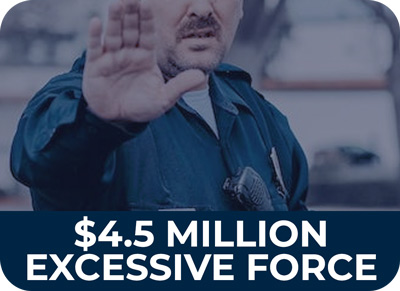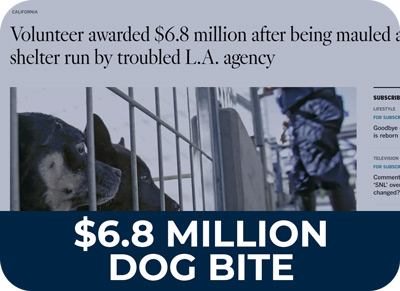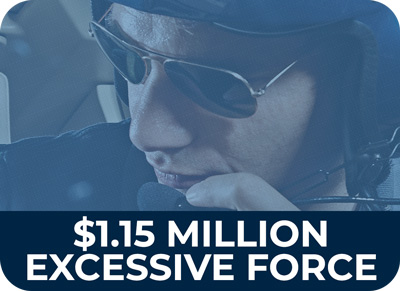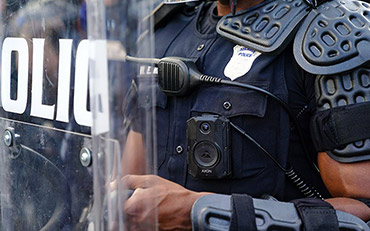Police brutality and excessive force are two terms that are often used interchangeably, but they actually refer to two different things.
Excessive force is a legal term that refers to the use of more force than is necessary for a given situation. In California, excessive force is defined in the state’s civil code as “the amount of force that is more than reasonable or necessary under the circumstances” (Cal. Civ. Code § 52.1). Read more about that here.
On the other hand, police brutality refers to the use of excessive force by law enforcement officers, but it also includes other forms of misconduct, such as verbal abuse, racial profiling, and false arrest. While excessive force is one form of police brutality, not all instances of police brutality involve excessive force.
The Difference Between the Two
To illustrate the difference between the two, let’s consider a hypothetical example. Imagine that a police officer pulls over a driver for a broken taillight. During the course of the traffic stop, the officer becomes agitated and starts yelling at the driver. The driver becomes upset and starts recording the encounter with their phone. The officer then forcefully grabs the phone out of the driver’s hand and throws it on the ground, smashing it.
In this example, the use of force by the officer to grab the phone could be considered excessive force, as it was more force than was necessary to resolve the situation. However, the officer’s behavior toward the driver could also be considered police brutality, as it involved verbal abuse and the destruction of the driver’s property.
It’s important to note that police officers are allowed to use force when necessary to carry out their duties, but the amount of force used must be reasonable and proportional to the situation at hand. When officers use excessive force, it can lead to physical harm to the victim, emotional trauma, and a violation of their civil rights.
Damages Are Critical In Either Type of Case
It is just as important to consider, however, that police brutality in situations where there are no medical injuries or clear damages to a person or their property is really hard to prove in court. It requires a nuanced analysis and has to go beyond “my feelings were hurt” or I feel “it could have been handled better”. Talking to an attorney is always the best first step as a police brutality or excessive force attorney will not take on a case that they feel they cannot win.
In California, victims of police brutality and excessive force may be able to seek legal recourse under the state’s civil code. Specifically, section 52.1 of the code allows individuals who have been subjected to excessive force or other forms of police misconduct to sue law enforcement officers and agencies for damages. Victims may also be able to file a complaint with the appropriate law enforcement agency or seek the assistance of a civil rights attorney. You can read about it straight from the official California Legislative website here.
In conclusion, while police brutality and excessive force are related concepts, they refer to two different things. Excessive force refers to the use of more force than is necessary for a given situation, while police brutality includes a range of misconduct, including excessive force. Understanding the difference between these terms is important for holding law enforcement accountable and protecting the civil rights of individuals.
How Kirakosian Law Can Help You
At Kirakosian Law, we handle civil rights cases, including:
- Police misconduct
- Malicious prosecution
- Wrongful arrest
If you or someone you know has suffered emotional distress or injury due to a civil rights violation, contact our attorney at Kirakosian Law APC for a free consultation.





